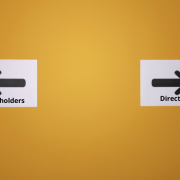What is a Limited Company?
A limited company is one of several legal structures a freelancer may choose to run their business – the other common structures being sole trader or through an umbrella company.
A limited company is a legal business structure where the liability of each shareholder is limited to their individual investment. This is known as limited liability.
In the UK, limited companies are governed by the rules and regulations contained in the Companies Act 2006, and all company registration and records are managed by Companies House.
If you’re wanting to set up a limited company then you should reach out to us and we will be able to assist you with this, but if you just want to know more about them then the read on.
Limited companies come in three flavours.
Private & limited by shares (LTD)
Most private companies limited by shares are small businesses or SMEs. This means the company is divided into slices (shares) and distributed amongst shareholders with equivalent monetary values attached. That is to say, often an individual will own 100% of the company through only one share.
Shareholders’ stakes (Cash Value) may rise and fall dependant on the success of the company and the shares cannot be sold on public markets. If you are a freelancer operating a limited company, it will be a private company limited by shares in the vast majority of cases.
Private & limited by guarantee
Members of companies limited by guarantee agree to pay a cash sum in the event their organisation goes belly-up. Rather than limited companies where their liability is limited to their initial investment. This setup is usually used by charities.
Public limited company (PLC)
A company with shares traded on public markets (the FTSE 500, NASDAQ etc.). Often a private company limited by shares will “go public” once it reaches a certain size. In other words, company’s shareholders will be able to offer their shares for sale to the public (and often make a killing in the process).
What about for freelancers and contractors?
There is no upper or lower size limit on limited companies. Therefore many freelancers and contractors choose to do business through a limited company for a variety of reasons, for example:
- Limited liability – if your company goes bust personal belongings can’t be touched
- Tax efficiency – company taxation rules mean you can keep more of your income through a limited company setup
- Easier to hire – incorporating makes all your dealings straight business-to-business transactions, meaning your clients don’t have to worry about your personal tax affairs
- Easier to grow – if your business expands it is easy to issue shares and take on employees
We’ve written a helpful information on the main advantages.
However, there are some disadvantages for freelancers, mostly in the form of additional reporting required from HMRC and Companies House. These are called the Directors Fiduciary Responsibilities and are often taken care of by an accountant – although you can do them yourself if you have a head for figures.
Is a limited company right for my business?
Some contractors working through agencies or deemed to be inside IR35 have to work through umbrella companies. However, Some businesses may prefer the simplicity of working as a sole strader. For personal advice on what is best for you then you should speak to an accountant. We offer a free consultation where our advisors will guide you through this and more. You can call us on 0330 113 8442 or you can book a callback. We’ll be happy to help you find the right structure for your business.
How can I get one?
Through our Company Formations service you can set up your very own limited company for just £50 – we’ll even refund the fee if you sign up to Accounting Wise, take up Small Business Insurance, or open a Barclays Business Bank account through our links.
Alternatively, if you like we can set up your company for you for a small fee as part of our joining process if you want Accounting Wise to be your company’s accountants.









